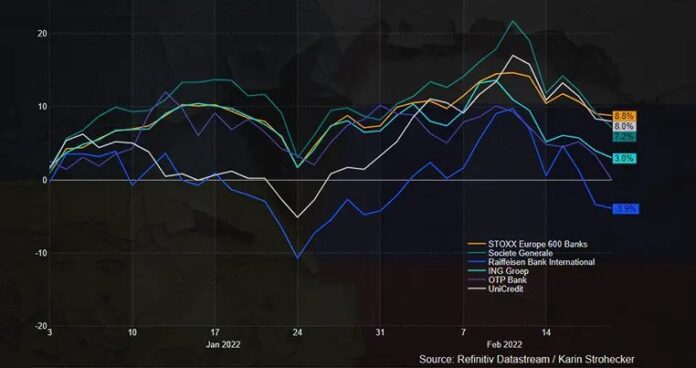On Monday, February 21 Russian President Vladimir Putin ordered troops into two pro-Moscow regions of Donetsk and Luhansk for ‘peace building’ after recognizing their independence. The move has drawn strong reactions from the United States, the United Kingdom, Germany and other European countries. While the NATO countries are mulling-over sanctions against Russia the global citizens are worried about effects on the economy and the peace. So, what happens next after this recent episode of the Russia-Ukraine crisis? Will there be a World War III? Will there be another economic recession when the world is already recovering from the previous one caused by the Covid19 pandemic? Will, there be another rise in oil price as sanctions on Russia will put pressure on the supply of fossil fuels? Are there going to be any winners due to possible diversion in the trade? Or, will Russia face a fate similar to Venezuela after the US sanctions?
There indeed is going to be a general way in which things will change for the globe, but different regions and countries may suffer differently depending upon their trade volume with Russia and possible trade diversion.
Will Russia Ukraine Crisis Cause an Inflation at Global Level?
A likely pressure on the supply of fossil fuels can indeed cause cost-pull inflation around the globe. A glimpse of the impact of Russia Ukraine crisis on the economy was evident when oil prices soared and stocks in countries like Hong Kong, China and Japan fell the next day after Putin announced to send his troops in rebel dominant regions of Eastern Ukraine.
From now one thing is evident any short-run impact of Russia Ukraine crisis on the economy of the world can be in three ways; the rise in prices of fossil fuels, particularly natural gas, rise in the price of food particularly wheat and decline in the price of stocks of companies that are associated with Russian banks and financial institutions facing the sanctions of the United States, United Kingdom and other western countries.
Russia has the biggest oil reserves of natural gas. Countries in Europe are heavily reliant on fossil fuel Russia which is responsible for one-third of the total gas imports of the region. The impact of course will differ from country to country; however, the entire world will have to suffer in one way or another. As seen in the covid 19 pandemic how minor supply chain disruptions had caused the global economy to collapse. Despite being one of the leading exporters of fossil fuels for Europe, and food for a few countries, Russia is not a big manufacturer like China or South Korea. Therefore, it is unlikely for sanctions to have much of an impact.
Interestingly, consumers in European Union appear to be more vulnerable to sanctions on Russia particularly when winter is here to stay for a few more weeks and they will have to pay higher bills for heating their homes. However the economy minister of Germany, Robert Habeck has told the media that his country could do without gas import from Russia. He reportedly admitted that initially energy prices will hike but consumers will get assistance from the government in extreme cases.
What sanctions Russia Is Facing Now?
The fear of economic crisis due to sanctions was already there since the start of the recent start Russia-Ukraine conflict a few months before. Earlier, there were just reports of Russian troops movement near the Ukraine border. Now when Putin has ordered ‘peacekeepers’ into breakaway regions the west and countries like Australia and Japan have finally come up with an initial package of sanctions.
In the first move, Germany has cancelled the Nord Stream 2 pipeline that was to bypass Ukraine for exporting gas from Russia to Germany. The project had already faced criticism from the United States as it was making Europe more reliant on Russian fossil fuels. President Biden of the United States signed an executive order on Tuesday sanctioning the big Russian banks and elites in a bid to bar Russian financial institutions from accessing the debt from the west.
Given the escalation in the Russia-Ukraine crisis, the United Kingdom has also sanctioned Russia. In an earlier bid, the government has reportedly frozen the assets of five Russian banks and put a travel ban on the Russian billionaires. Prime Minister Boris Johnson stated that there could be an extension in the sanctions in future.
Apart from the western power Australia and Japan have also announced to sanction Russia through targeting of financial institutions and selective travel bans.
It appears that till now most of the sanctions are aimed at depriving Russia of debt and capital as countries have taken action by freezing the assets of banks and putting travel bans on business and political elites. However, no such action as halting the trade of energy commodities has been taken yet.


